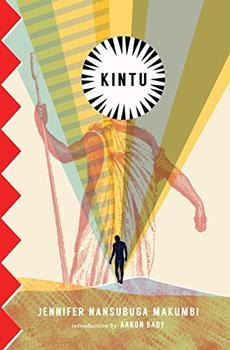Summary | Excerpt | Reading Guide | Reviews | Beyond the book | Read-Alikes | Genres & Themes | Author Bio

A Novel
by Aminatta FornaForna's first novel is told through the alternating stories of four
strong women that, in combination, powerfully capture the social and
political history of the small West African country of Sierra Leone through at
least 60 troubled years.
The story opens in 2003 with Abie, a young woman
born and raised in Sierra Leone but now settled in London with her European
husband and their children, opening a letter from her aunts informing her that
they are giving her the family coffee plantation, and requesting that she
return for a visit. It is not just the plantation they want to give her. On her return, the aunts share with Abie their own stories as if they were lifting "the past from their own
shoulders" and handing it to her, so that she might continue to pass the
stories through the generations.
My only criticism of this gorgeous, powerful book is that I found it difficult
to distinguish between the voices of the four women, so instead of reading the
book as a series of alternating short stories told by the various aunts, I
simply skipped through reading all the stories by one woman, and then going back
to the beginning to read about the next aunt - essentially turning the book into
four interconnected novellas as opposed to sixteen interconnected short stories.
About the author
Ancestor Stones is Aminatta Forna's first work
of fiction. Formerly a TV reporter and journalist she is also the author
of Mother
of All Myths (1998) and the memoir The Devil That Danced on the Water (2002) which told of her childhood growing up in Sierra Leone
during the country's transition from democracy to dictatorship. In 1974, when she was ten years old, Siaka Stevens, President of Sierra Leone, sent militiamen to her family's house to arrest her father - a former doctor who had gone into politics as a member of Stevens' government, but resigned, having
accused Stevens of corruption and cheating the World Bank, and formed an
opposition party. Three years later he was arrested, convicted and hung,
and his wife and children fled, eventually escaping to England.
One
of the questions that troubled Forna was why it took 3 years from the time of her father's opposition to when he was arrested. As she pieced together the
history of the country with her own family's history she realized that this was
the time it had taken Stevens to systematically establish his dictatorship -
emasculating the army, forcing the chief of police out, and establishing his own
militia.
She returned to Sierra Leone in 2000 when a letter from her
father was discovered. Just before he and eight others were due to be executed
they were given an opportunity to write a letter pleading for clemency.
Only her father and one other man refused and instead wrote a letter recording
their views on the history and future of Sierra Leone - her father wrote
prophetically of a country descending into anarchy. She also discovered
that her father knew of his imminent arrest but had refused all chances of
escape and that all the witnesses at his trial had been paid to testify against
him.
When asked how her memoir was received by her family and in Sierra Leone she
replied, "There are no bookshops in Sierra Leone. I have shipped some copies out
myself, as the publishers have no interest out there. My family have been very
supportive and realize that the importance of the story outweighs the importance
of some of the less flattering representation of some people within it. My aim
in writing it as a very personal account was to encourage people who would not
normally be interested in African issues to read about the continent."
As an author she feels that it is her role to archive, flesh out, challenge and
repossess history, giving conflicts character and giving a voice to the dead - a
role she started with The Devil That Danced on the Water and continues in
Ancestor Stones.
![]() This review was originally published in The BookBrowse Review in September 2006, and has been updated for the
September 2007 edition.
Click here to go to this issue.
This review was originally published in The BookBrowse Review in September 2006, and has been updated for the
September 2007 edition.
Click here to go to this issue.

If you liked Ancestor Stones, try these:

by Peace Adzo Medie
Published 2021
"Elikem married me in absentia; he did not come to our wedding."

by Jennifer Nansubuga Makumbi
Published 2017
First published in Kenya in 2014 to critical and popular acclaim, Kintu is a modern classic, a multilayered narrative that reimagines the history of Uganda through the cursed bloodline of the Kintu clan.
Your guide toexceptional books
BookBrowse seeks out and recommends the best in contemporary fiction and nonfiction—books that not only engage and entertain but also deepen our understanding of ourselves and the world around us.